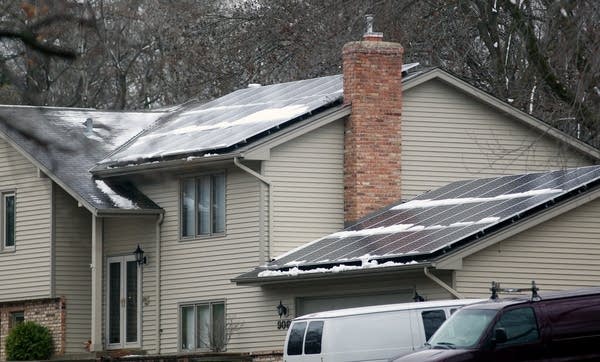Environmental interests see gains in legislative session
Go Deeper.
Create an account or log in to save stories.
Like this?
Thanks for liking this story! We have added it to a list of your favorite stories.

The just-completed legislative session stands apart from others by the availability of new money for the environment. After years of budget cuts and reallocations, state agencies now get a boost in funding, and a mandate to use it effectively. Legislators also grappled with frac sand mining and solar power issues.
The state Pollution Control Agency's budget increased by about 6 percent, and the Department of Natural Resources got $15 million in new money, most of it going to forestry and groundwater work.
Instead of increasing fees on water use and boat licenses, legislators tapped the general fund -- now boosted by tax increases on the wealthy and cigarette smokers -- and Legacy sales tax money.
The infusion of new money made it an unusual session, said Steve Morse, executive director of the Minnesota Environmental Partnership.
Turn Up Your Support
MPR News helps you turn down the noise and build shared understanding. Turn up your support for this public resource and keep trusted journalism accessible to all.
"For the first time in a long time we weren't cutting programs for our great outdoors; we were increasing," Morse said. "The increase going into the base going forward is about $25 million, which in the environment is a significant amount of money."
Legacy funding for clean water, the outdoors, parks, and the arts totaled nearly $500 million for the next two years.
Near the top of the environmental wish list was a solar standard for the state. It's similar to the existing renewable electricity standard, which has helped Minnesota develop a thriving wind power industry. The state has set a goal of 1.5 percent of electricity generated from solar by 2020.

Even that small target will jump-start a solar industry in the state, said Michael Noble, executive director of the non-profit group Fresh Energy.
"The most important thing was getting started, and creating a large market in the next five to seven years is really more than sufficient to get going and get a lot of businesses growing in the solar sector," Noble said.
Utilities said the mandate will result in unfair rate increases for customers. City-owned utilities and co-ops are exempted from the mandate.
Thousands of residents of southeastern Minnesota came to the Capitol over the past several months to ask the Legislature for a year-long moratorium and strong regulations on new mining for frac sand -- the fine, hard silica sand that is used to produce oil and gas in other parts of the country.
But the push for a moratorium seemed to fizzle early in the session. Instead, legislators approved a permit requirement for any frac sand mine within a mile of a trout stream. Also, state agencies will set health limits for silica sand, along with air quality standards and mine reclamation rules.
Bobby King, policy organizer for the Land Stewardship Project, said people in the region are disappointed there are no hard and fast rules; they say protection will only come if state agencies are tough on the industry.
"People went in with high hopes; they felt they made a good case for a moratorium, so people are discouraged a little bit, but still committed to making sure the frac sand industry doesn't destroy their community," King said.
Some Iron Range legislators resisted some of the proposed measures; they worried the same requirements could eventually be imposed on taconite mines.
But it was a good compromise, says Dennis Egan, executive director of the Minnesota Industrial Sand Council.
"At the end of the day, I think what will happen is that if we implement what was talked about at the Capitol, we have a sand industry that can move forward in Minnesota," Egan said. "And our hope is that we will continue to do that."
A flap is brewing over the legislature's allocation of $3 million from the Legacy fund to provide grants for work on aquatic invasive species. The Legacy advisory group had not reviewed the project, and some groups are asking Gov. Mark Dayton to line-item veto the allocation, saying it's not for wildlife habitat.
Environmental groups are pleased with passage of the Clean Water Accountability Act. It requires the state to be more precise in identifying sources of pollution from farm fields; it also requires the state to set timelines and benchmarks to track progress in cleaning up lakes and rivers.
The Legislature also approved a stewardship program for paint, to be organized and paid for by the industry; a ban on coal-tar sealants for roads and driveways, and a streamlined process to make it easier for cities to organize solid-waste collection. There's also a certification program for farmers who commit to keeping lakes and rivers clean.



